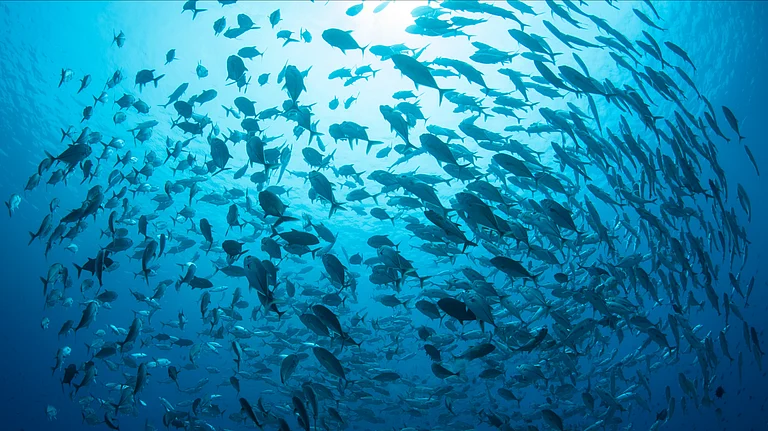Warming Oceans have impacted clownfish which reportedly shrank in size to cope with the change. Scientists found that some of the orange-striped fish shrank their bodies during a heat wave off the coast of Papa New Guinea. They reported that fish that slimmed were more likely to survive, reported Associated Press.
According to the Great Barrier Reef Foundation, clownfish and anemones share a symbiotic relationship. Clownfish uses sea anemones as their homes where the anemone protects the clownfish from predators and in turn, the clownfish uses its bright colours to attract fish into anemone, where they get killed by anemone’s poison and eaten. The clownfish also fertilises the anemone with its faeces.
However, as ocean heatwaves are becoming common and intense, warm water temperatures can bleach sea anemones where clownfish resides. This phenomenon is forcing them to adapt to stay alive.
Heatwaves Reshape Marine Life
Scientists monitored and measured 134 colorful clownfish in Kimbe Bay during an intense heat wave in 2023 that’s still bleaching corals worldwide. They found that 101 clownfish decreased in length on one or more occasions from heat stress.
“We were really shocked at first when we saw that they were shrinking at all,” said study author Morgan Bennett-Smith with Boston University. The findings were published on May 28 in the journal Science Advances.
Though scientists don’t yet know how clownfish shrink, one idea is that they could be reabsorbing their own bone matter. It’s possible the smaller stature may help the clownfish save energy during a stressful scorch since smaller fish need less food.
The scientists also believe that the tactic of shrinking in size works in the short-term, but it’s not yet clear how the fish will react if they have to keep it up in the years to come, Simon Thorrold, an ocean ecologist at Woods Hole Oceanographic Institution who was not involved with the new study told Associated Press.
This is especially concerning as a recent study published in the journal Environmental Research Letters showed that ocean temperatures are rising at 0.27 degrees Celsius per decade during 2019-23, compared to 0.06 degrees Celsius every decade in the late 1980s.
(With inputs from PTI.)
































